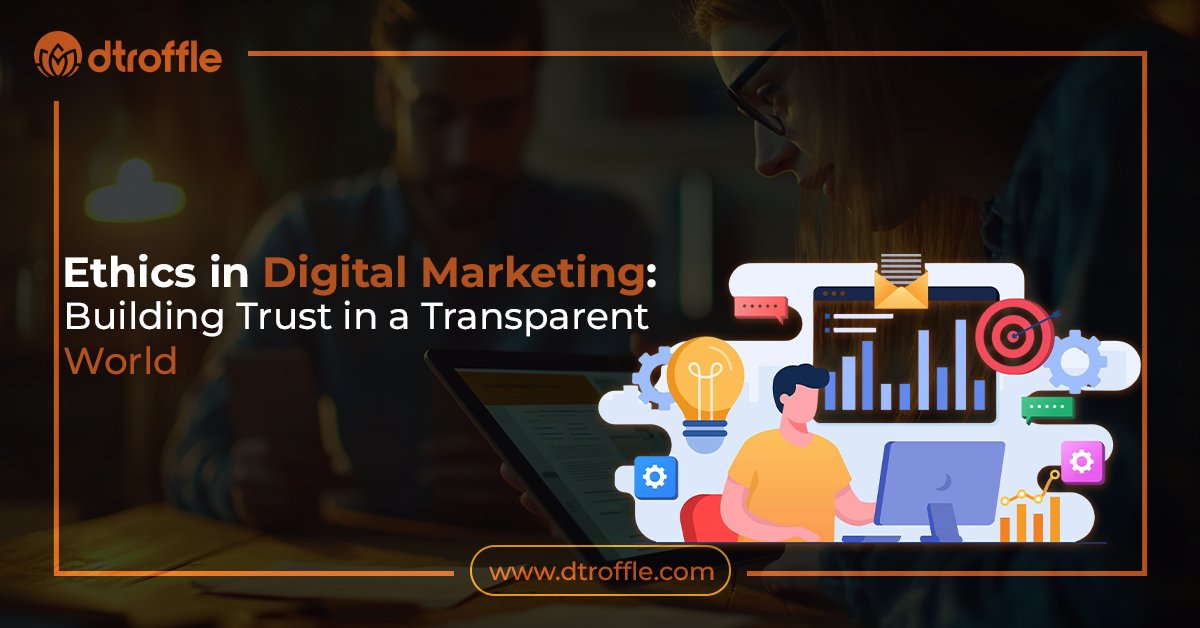Ethics in Digital Marketing: In the ever-evolving world of digital marketing, staying ahead isn’t just about using the latest tools, it’s about earning and maintaining consumer trust. From social media ads to influencer partnerships, marketers have more opportunities than ever to connect with audiences. But with great power comes great responsibility. Ethical in digital marketing means doing what’s right, not just what works.
As we explore the core principles of digital marketing ethics, we’ll also connect to related strategies like Digital Marketing Content Optimization, Digital PR, and choosing the Best Digital Marketing Agency that follows these practices.
1. Transparency and Honesty
Transparency forms the foundation of ethical marketing. Avoid misleading clickbait and exaggerated promises. Whether you’re promoting your brand or comparing strategies like Google Ads vs Meta Ads, always provide clear, accurate information.
Honesty helps your audience understand your brand’s real value, and fosters long-term loyalty. This aligns directly with the approach outlined in our Digital Marketing Services, which highlights authentic messaging.
2. Respect for Consumer Privacy
Data is gold in digital marketing, but how you use it defines your brand’s ethics in digital marketing. Ethical marketers:
- Ask for explicit user consent
- Use data only for stated purposes
- Provide easy opt-out options
Respecting privacy and following regulations like GDPR ensures your audience feels safe. This ethical approach also complements content strategies in What Is Marketing and What Is Its Benefit in 2025, where trust is key to conversion.
3. Avoiding Manipulative Tactics
Yes, digital tools are powerful, but with power comes accountability. Creating fake urgency or exploiting insecurities can yield short-term gains, but they tarnish your brand over time.
Instead, offer real value that solves real problems. Our insights on Content Optimization can help you communicate that value more effectively.
4. Fair Competition and Integrity
Avoid underhanded tactics like negative SEO or fake reviews. Ethical digital marketers compete by building better solutions, not by tearing others down.
Fair play improves not just your brand’s reputation, but also the digital ecosystem as a whole. Working with the Right Digital Marketing Agency ensures your campaigns reflect these values.
5. Social Responsibility in Marketing
Your campaigns should reflect your brand’s stance on social issues. Ethical brands promote:
- Inclusivity and diversity
- Responsible messaging
- Positive social impact
For example, our article on The Rise of Micro-Influencers explains how authentic, socially aware voices are now more powerful than mega endorsements.
6. Influencer Marketing and Disclosure
Influencer campaigns must clearly disclose partnerships. Failing to do so can mislead consumers and break trust.
Work with influencers whose values reflect your own. Our guide on How Digital PR Can Benefit Your Business shares more on building authentic collaborations that convert.
Conclusion
Ethics in digital marketing is more than compliance, it’s a commitment to trust, fairness, and long-term growth. By being transparent, safeguarding privacy, avoiding manipulation, and acting responsibly, your brand earns respect and loyalty.
For ethical, results-driven marketing strategies tailored to your business, explore our full range of Digital Marketing Services.






